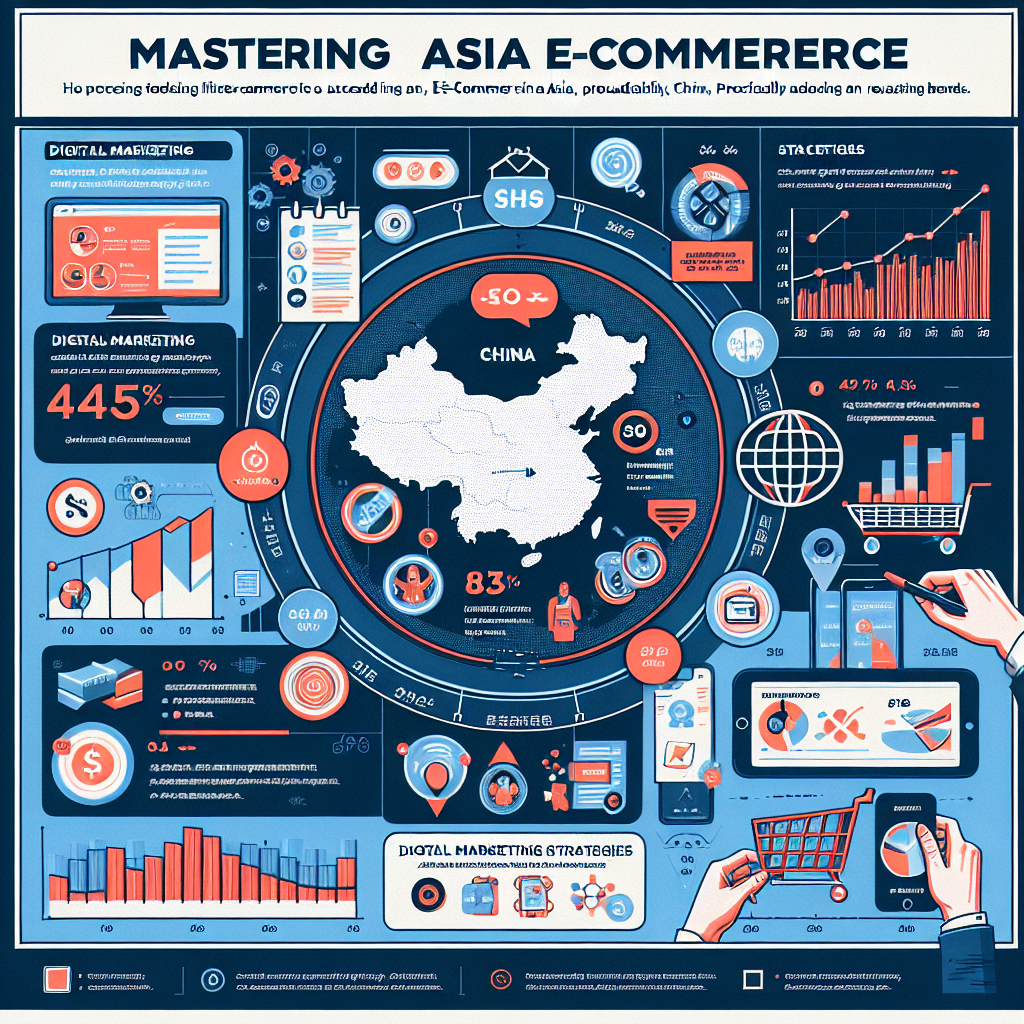“`html
Mastering China Digital Marketing: Strategies for Success in Asia E-commerce
As the world’s largest e-commerce market, China presents unparalleled opportunities for brands willing to navigate its unique digital landscape. From social media marketing to mobile commerce, understanding the intricacies of China’s digital marketing ecosystem is crucial for success. In this post, we’ll explore effective strategies to master China’s digital marketing and thrive in the e-commerce arena.
Understanding the Chinese Digital Landscape
China’s digital environment is distinct from the rest of the world. It is characterized by its unique platforms, consumer behavior, and regulatory framework. Key aspects to consider include:
- Platform Dominance: Unlike Western markets where Google and Facebook reign supreme, China’s digital ecosystem is dominated by platforms such as WeChat, Alibaba, and Douyin (TikTok). Each platform has its own user base and marketing strategies.
- Mobile-First Approach: With over 1 billion smartphone users, mobile commerce is a primary driver of e-commerce in China. Brands must prioritize mobile-optimized websites and apps to cater to this audience.
- Regulatory Challenges: Understanding China’s strict regulations regarding data privacy, content censorship, and e-commerce laws is essential for any brand looking to enter the market.
Creating a Compelling Brand Presence
Establishing a strong brand identity is fundamental in the competitive Chinese market. Here are some strategies to build your brand presence:
- Localized Branding: Adapt your brand messaging and visuals to resonate with Chinese consumers. This may involve changing product names, packaging, and marketing materials to fit cultural norms.
- Utilize Influencer Marketing: Collaborate with local influencers who can authentically promote your brand. Micro-influencers can be particularly effective in niche markets.
- Engage Through Social Media: Utilize platforms like WeChat and Weibo to engage with your audience. Regularly post content that encourages interaction, such as polls, contests, and user-generated content.
Leveraging E-commerce Platforms
Choosing the right e-commerce platforms is vital for reaching your target audience. Here’s how to effectively leverage major platforms:
- Alibaba: As a leader in B2B and B2C e-commerce, Alibaba provides vast opportunities for brands. Consider setting up a flagship store on Tmall for a premium shopping experience.
- JD.com: Known for its logistics and delivery capabilities, JD.com is ideal for brands that prioritize fast shipping and customer service.
- Social Commerce: Platforms like WeChat and Douyin allow direct sales through social media. Create engaging content that drives traffic to your e-commerce store.
Implementing Effective Digital Marketing Strategies
To successfully market your products online, consider the following strategies:
- Search Engine Marketing (SEM): Baidu is China’s leading search engine. Invest in SEM campaigns to increase visibility for relevant keywords.
- Search Engine Optimization (SEO): Optimize your website for Baidu by focusing on local keywords, building backlinks, and improving site speed.
- Content Marketing: Create high-quality, localized content that addresses the interests and needs of your audience. Use videos, blogs, and infographics to engage users.
Understanding Consumer Behavior
Chinese consumers exhibit unique behaviors that brands need to understand:
- Preference for Brand Authenticity: Consumers value brands that are genuine and transparent. Build trust through authentic storytelling and customer engagement.
- Social Proof: Reviews and recommendations play a crucial role in purchase
Post Views: 405




